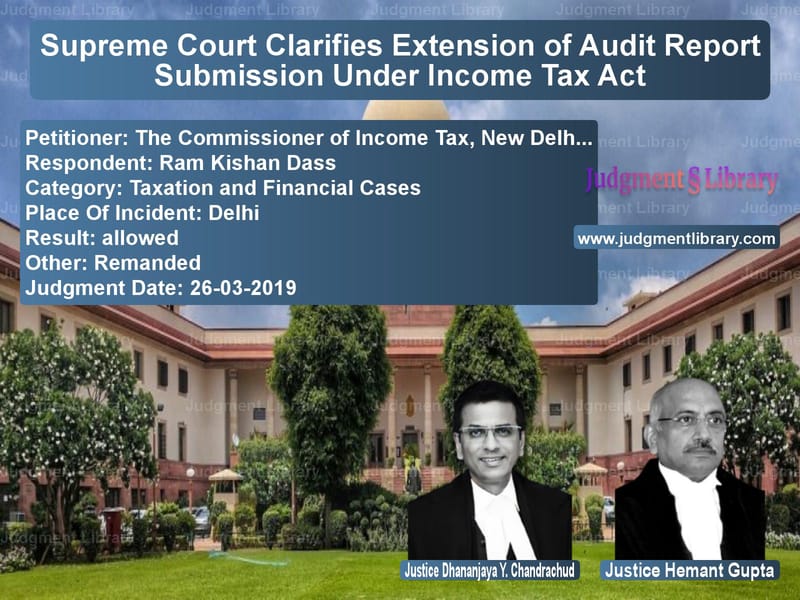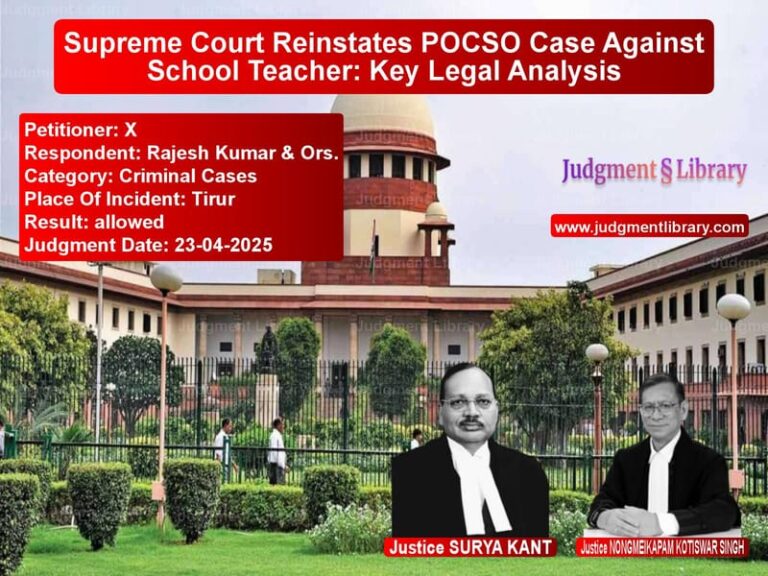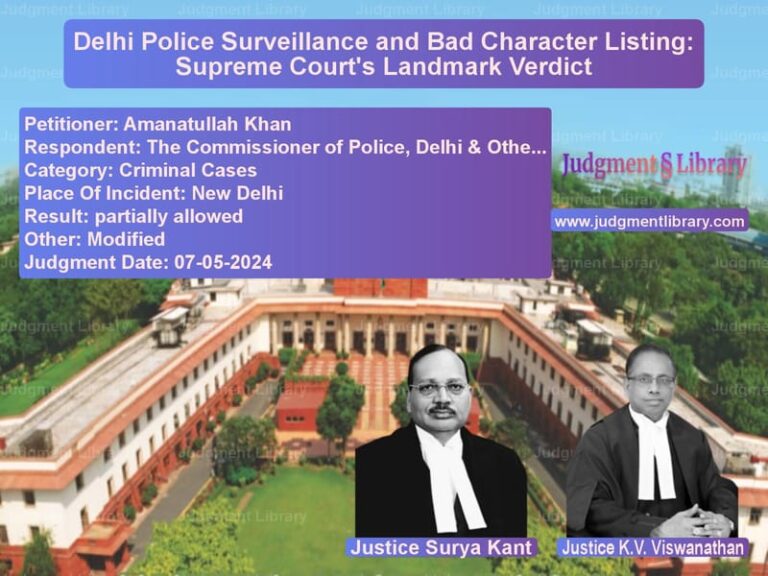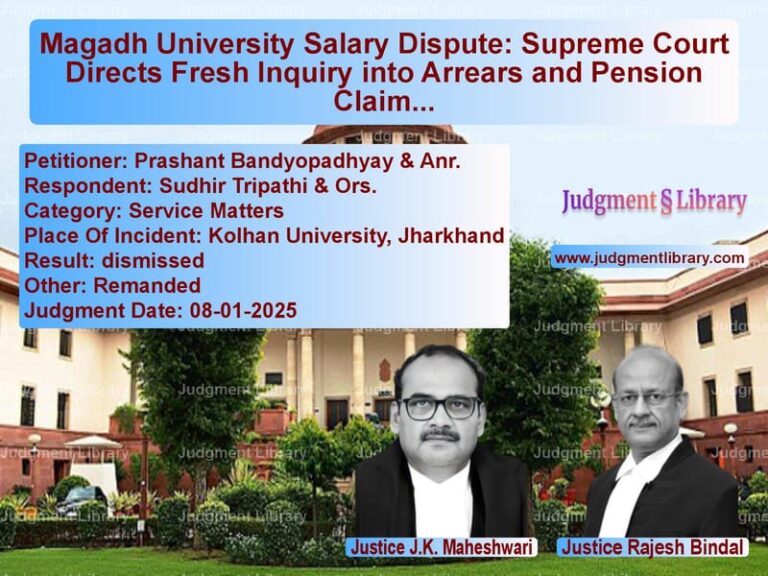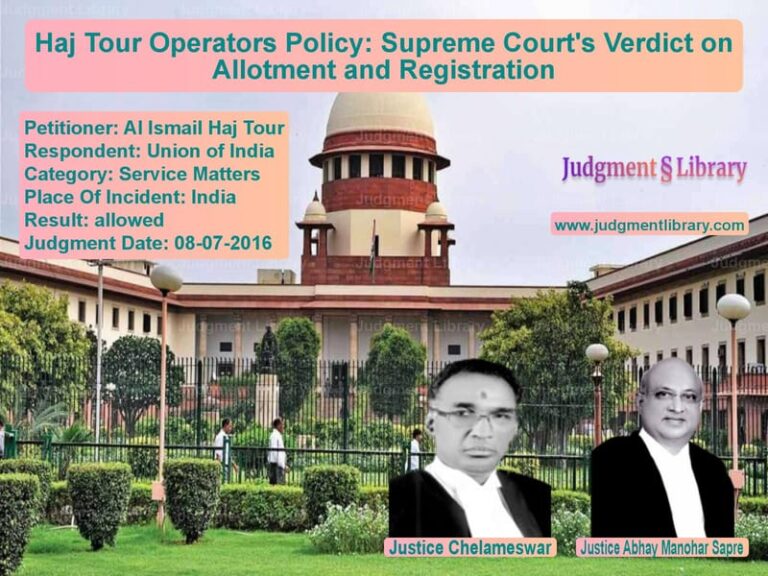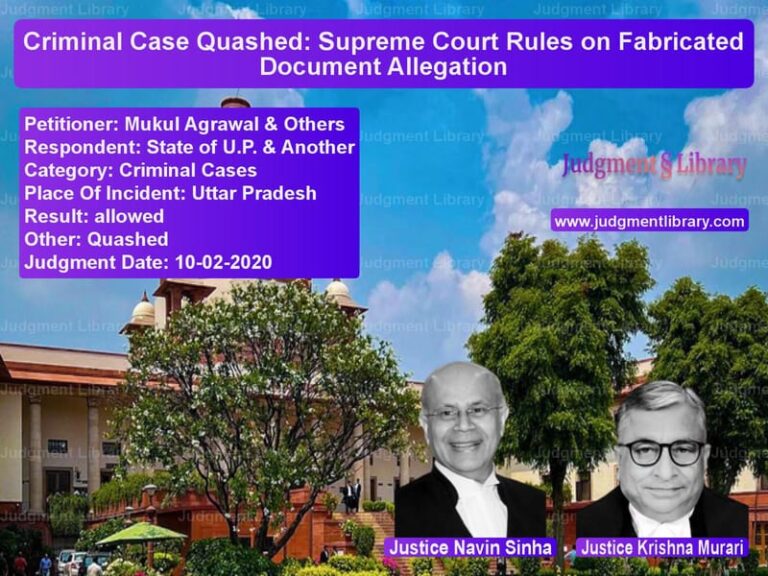Supreme Court Clarifies Extension of Audit Report Submission Under Income Tax Act
The Supreme Court of India, in the case of The Commissioner of Income Tax, New Delhi vs. Ram Kishan Dass, provided an important ruling regarding the authority of the Assessing Officer to extend the time for submission of an audit report under Section 142(2C) of the Income Tax Act, 1961. The judgment clarifies whether the Assessing Officer had the power to extend the deadline before an amendment was introduced in 2008, which explicitly allowed for such an extension.
Background of the Case
The case originated from an appeal by the Income Tax Department against an order of the Delhi High Court. The High Court had ruled in favor of the taxpayers, holding that before the amendment in 2008, the Assessing Officer did not have the authority to extend the time for submission of the audit report unless the taxpayer had specifically applied for such an extension.
The core issue in this case was whether the Assessing Officer could, suo motu, extend the deadline for an audit report under Section 142(2C) before the Finance Act, 2008 explicitly granted such authority.
Relevant Legal Provisions
Section 142(2A) of the Income Tax Act allows the Assessing Officer to direct an assessee to get their accounts audited in cases where the nature and complexity of the accounts warrant such an audit. Under Section 142(2C), the taxpayer was required to furnish the audit report within a specified time. The pre-2008 version of the section stated:
“Provided that the Assessing Officer may, on an application made in this behalf by the assessee and for any good and sufficient reason, extend the said period…”
After the 2008 amendment, the provision was changed to explicitly allow the Assessing Officer to extend the deadline either suo motu or on an application by the taxpayer.
Arguments by the Petitioner (Income Tax Department)
The Income Tax Department argued that:
- The Assessing Officer always had the authority to extend the deadline, even before the 2008 amendment.
- The 2008 amendment was merely clarificatory and did not introduce a new power but rather clarified an existing one.
- The Delhi High Court misinterpreted the law by assuming that the Assessing Officer could not extend the time without an application from the taxpayer.
- The High Court’s ruling created unnecessary constraints on tax assessments and was inconsistent with the intent of the Income Tax Act.
Arguments by the Respondent (Ram Kishan Dass and Others)
The respondents contended that:
- The Assessing Officer’s power to extend time was limited by the law as it stood before 2008.
- The 2008 amendment created a new power, rather than merely clarifying the existing provision.
- If Parliament had intended for Assessing Officers to have this power earlier, it would have explicitly stated so.
- The High Court correctly held that the tax assessments were time-barred since the extension of the audit deadline was not legally valid.
Supreme Court’s Observations
The Supreme Court carefully examined the legislative history and intent behind the amendment to Section 142(2C). The key observations made by the Court were:
- The power of the Assessing Officer to direct an audit under Section 142(2A) implicitly carried with it the authority to grant reasonable extensions for submission of the audit report.
- The requirement that an extension could be granted only upon an application by the taxpayer created ambiguity.
- The 2008 amendment was clarificatory in nature and did not introduce a new power but merely removed an existing ambiguity.
- The Delhi High Court’s interpretation was too restrictive and did not align with the overall purpose of the Income Tax Act.
The Court stated:
“The legislative intent behind the amendment to Section 142(2C) was not to confer a new power on the Assessing Officer but to remove ambiguity and clarify that such power always existed.”
Final Judgment
The Supreme Court set aside the Delhi High Court’s ruling and held:
- The Assessing Officer had the power to extend the deadline for submission of an audit report suo motu, even before the 2008 amendment.
- The tax assessments made in these cases were not time-barred.
- The cases were remanded to the respective appellate authorities for further proceedings.
The Court concluded:
“The amendment in 2008 was meant to clarify an existing legal position rather than introduce a new power.”
Conclusion
This ruling clarifies that tax authorities have the discretion to extend deadlines for submission of audit reports even if the taxpayer does not request an extension. By interpreting the 2008 amendment as clarificatory, the Supreme Court has ensured that tax assessments are not invalidated due to procedural technicalities.
Petitioner Name: The Commissioner of Income Tax, New Delhi.Respondent Name: Ram Kishan Dass.Judgment By: Justice Dhananjaya Y. Chandrachud, Justice Hemant Gupta.Place Of Incident: Delhi.Judgment Date: 26-03-2019.
Don’t miss out on the full details! Download the complete judgment in PDF format below and gain valuable insights instantly!
Download Judgment: The Commissioner of vs Ram Kishan Dass Supreme Court of India Judgment Dated 26-03-2019.pdf
Direct Downlaod Judgment: Direct downlaod this Judgment
See all petitions in Income Tax Disputes
See all petitions in Tax Evasion Cases
See all petitions in Banking Regulations
See all petitions in Judgment by Dhananjaya Y Chandrachud
See all petitions in Judgment by Hemant Gupta
See all petitions in allowed
See all petitions in Remanded
See all petitions in supreme court of India judgments March 2019
See all petitions in 2019 judgments
See all posts in Taxation and Financial Cases Category
See all allowed petitions in Taxation and Financial Cases Category
See all Dismissed petitions in Taxation and Financial Cases Category
See all partially allowed petitions in Taxation and Financial Cases Category

